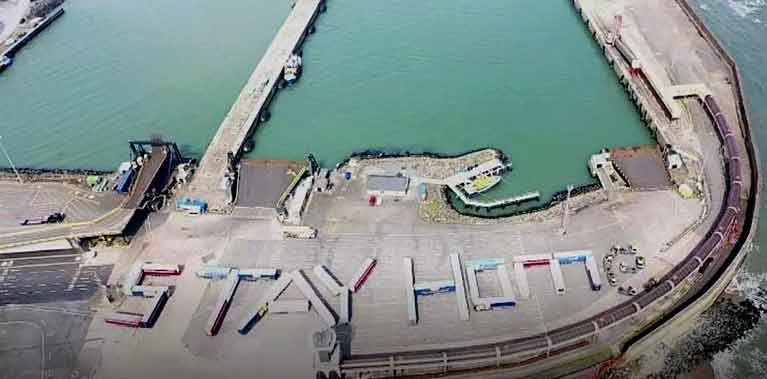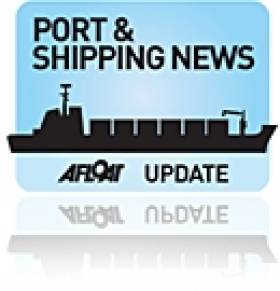Displaying items by tag: Europort
Rosslare Europort "Stay Home" Appeal (Video)
TUG drivers and hauliers using Rosslare Europort have created a “stay home” message which has been captured by drone photography.
The formation of trailers and tugs into the words “Stay Home” is intended to appeal to non-essential travellers during the Covid-19 pandemic, Rosslare Europort says.
Over 20,000 trailers and trade cars have been handled through Rosslare Europort and the ports of Bilboa, Fishguard, Cherbourg, Pembroke and Zeebrugge over the last number of weeks, it says.
“While we greatly miss our passengers using the port, we thank you for staying at home during these very challenging times and look forward to seeing you again in the near future,” the port says in an appeal issued through Iarnród Éireann.
It says its current focus is on continuing to “ remain fully operational through the dedication of our frontline team”, working in conjunction with the shipping lines and haulage industry to deliver essential goods throughout Ireland.
“We are working hard and ask that you stay home,” the port says.
#RosslarePort - RTÉ News reports that two men are due before a special sitting of Wexford District Court this morning (Sunday 5 May) on drug smuggling charges after being stopped on entry at Rosslare Europort.
The Lithuanian men were stopped in their van as is drove off a ferry from France at Rosslare on Friday after customs drug dog Ralph indicated the presence of drugs in the vehicle, according to The Irish Times.
Upon search, customs officers discovered a haul of heroin and amphetamines with a street value of some €190,000 - along with a cache of steroids, tobacco and alcohol.
As The Daily Edge reports, Ralph the sniffer dog has been with Revenue's Customs Service since last summer working the Rosslare entry port, where he has previously sniffed out more than €300,000 worth of cannabis resin.































































